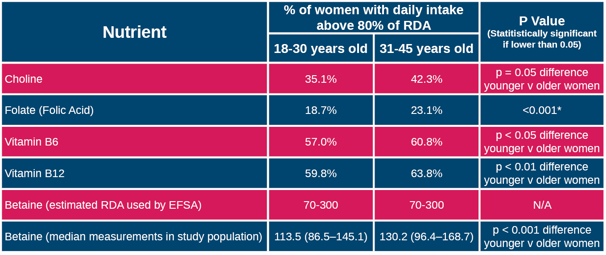Good nutrition improves fertility
(Reduello-Requejo et al)
Ideally, our diet should provide all the essential nutrients. However, very few people maintain a regular healthy diet, so many fail to intake the necessary metabolites needed for optimal fertility and a healthy pregnancy. A study of Spanish women found that a minority regularly consumed all the required nutrients. The study authors suggested that switching to a more traditional Mediterranean diet, that includes more green leafy vegetables, pulses, and seeds, could help bridge the nutritional gap. However, this might not be practical for everyone, so it could be beneficial to supplement the diet with a daily tablet that provides the daily requirement of each essential nutrient.


Commentary from the research team - lessons for all of Europe
"Overall, average intakes for all nutrients were well below recommendations, except for vitamin B12. Although discouraging, the results obtained are consistent with the available evidence. At the European level, Venneman et al assessed choline intakes from populations across 12 representative surveys from 9 different countries. Average intake estimates ranged from 291 to 374 mg/d among females aged 18 to ≤65 years old, values that were well below the [RDA] for choline."
"There is growing evidence that choline supplementation might beneficially influence several physiological processes in the offspring (e.g., brain development, hypothalamic–pituitary–adrenal (HPA) axis stress reactivity) and improve overall offspring health (e.g., cognitive function, reduced risk of chronic and developmental diseases)"
"Overall intake adequacy was only observed for vitamin B12, with a limited number of participants showing adequate intakes for all the other components. In addition, mean intakes of choline, betaine and folates were significantly lower for younger women."
"Results illustrate the relevant need there is to raise awareness about optimizing the nutritional status of the methionine cycle-related vitamins in this vulnerable population, but also the need to prioritise and discuss nutritional supplementation policies for all these components"





